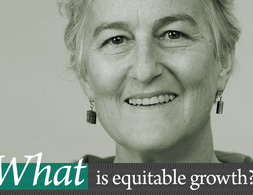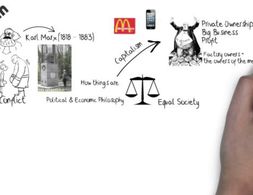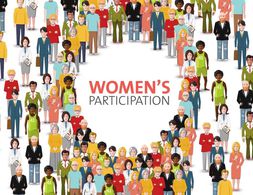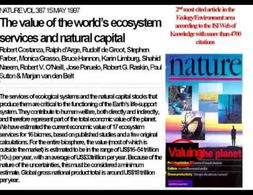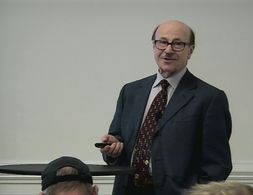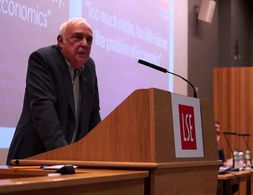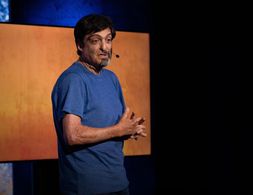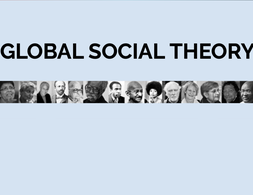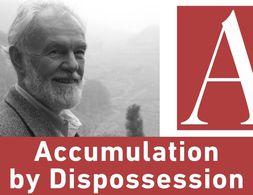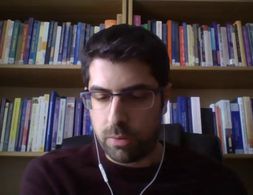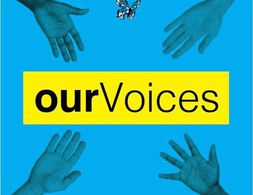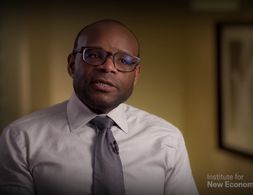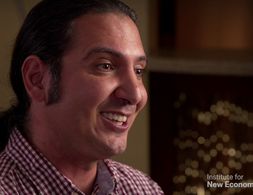✕
1047 results
What is “equitable growth” and how do we measure it? A better understanding of equitable growth—and how to measure it—can improve our understanding, inform decisions and lead to better outcomes for all.
The podcast explores the psychosocial implications of poverty in the society. Keetie Roelen investigates how the emotion of shame and policy-making are intertwined.
This presentation looks at the basic idea of Marxism, specifically the conflict between the different classes in society.
This animated video explains gender responsive budgeting and how it is used to mainstream gender in governance planning and budgeting. The video has been pro...
Robert Costanza briefly present various methods of environmental valuation, and talks about the changes in the global value of ecosystem services. He then introduces the major ecosystem services, and how different methods of valuation affect the preferred policies to address environmental issues.
In this short video behavioural economist, Dan Aerily talks about how our cognitive illusions will trick us into believing something that is otherwise deemed irrational by the homo economicus. It raises and probes into some very interesting questions that defy the neoclassical rational behaviour.
In this article, Perry Mehrling, a professor of economics at Barnard College, presents and discusses three theories of banking which are guiding bank regulation. These are credit creation theory, fractional reserve theory and debt intermediation theory.
Donald Trump won in 2016 largely because enough voters in three states, all in the Rustbelt, which had voted for Barack Obama in both 2008 and 2012, switched their electoral votes from Democratic to Republican.
A rethinking of the way to fight global poverty and winners of the Swedish Bank Prize for Economics.
Professor Jennifer Clapp explains the dynamics of financialization of land and agricultural commodities in Subsaharan Africa. She points to the historical roots of accelerated land speculation and their connection to financial institutions, both generating and reinforcing the process of financialization of African land. Besides talking about roots and dynamics of speculation with land on financial markets, she puts the perspective of scholarly investigation onto the investor's side in discussing guidelines of responsible investment and regulation in the front instead of focussing on the receiving countries.
Prof. Robert Guttmann looks at the current transformation of the international world order through the lenses of global money and finance.
This panel discusses the role of mathematics and history in economics. Lord Robert Skidelsky and Dr. Ha-Joon Chang advocate for a more prominent role of history and a less prominent role of mathematics within economics. Prof. Steve Pisckhe and Prof. Francesco Caselli defend the dominant role of mathematics within economics. Each of the speakers gives a 10-15 minutes talk advocating his position, before the panel is opened up for Q&A. The discussion is moderated by Prof. James Foreman-Peck.
Quinn Slobodian a historian of modern Germany and international history analysis of current development in the Mont Pèlerin Society and therefore neo-liberalism. He sees neo-liberalist thinkers less as believers in the self-healing power of markets, but more as ordo-liberal Globalists who wanted to protect the markets from post-war politics and especially mass democracy. Their goal of global capitalism is still strong, however sceptics in the Mont Pèlerin Society are rising, which see international migration as a threat to Globalisation. Therefore, turning neo-liberal policies away from international institutions like the EU back towards the national states as new defenders of the markets as well as international trade and investments.
(A development which can be seen in the Friedrich A. von Hayek-Gesellschaft and especially in the "liberal" wing of the German rightwing populist party AfD)
How does fiscal policy work and which dimensions have to be considered? In this short text, you can learn about the difficulty of juggling different dimensions and which optimal rules exist at the micro and macro level.
In this tenth lecture in INET’s “How and How Not to Do Economics,” Robert Skidelsky argues that there are two main reasons why economists should study history.
Mariana Mazzucato explains how we lost sight of what value means and why we need to rethink our current financial systems so capitalism can be steered toward a bold, innovative and sustainable future that works for all of us.
In this TED Talk, the behavioral economist Dan Ariely explain how changing our environment could change our behavior and how this connects with how we think about economics, through simple but powerful examples.
Global Social Theory is a large wiki-like project by Gurminder K Bhambra. Its central aim is decolonising and diversifying universities, production of knowledge, and social thought in general.
It represents a large online library divided into three parts: concepts, thinkers, and topics in/of social theory and decolonial thought. Every part comprises of short, introductory articles on an according theme. It may be helpful to give you a general overview (and a list of basic readings) on the most essential areas of social theory: caste, class, and race; civil society; racism; secularism; feminism and many others.
It may also allow students whose university curriculum in sociology, economics, or other social sciences lacks diversity to compensate for that.
Prof. Yanis Varoufakis talks in this introductory lecture about the future of our economy and the current state of economics with special regard to pluralism in economics.
Dani Rodrik, Professor of International Political Economy at Harvard's Kennedy School of Government, is teaching in this online session about the global rules under which the modern (free trade-focused) type of globalization operates and why, under such institutions, international community fails to deal with the climate change and pandemics.
To prevent the coronavirus shock to demand precipitating a long-lasting depression, government needs to become short-term payer of last resort.
Banner and Pastor debunk granted assumptions of the neoclassical theory, such as self-interested human behavior, the necessity of inequality and growth, to pull the threads between the new possible foundations of our society, "prosperity, security and community".
In this short lecture the marxist economic geographer David Harvey explains how his theory of The accumulation of dispossession came about and its central principles The theory builds on Marx law of the centralisation of capital arguing how the accumulation no longer stems from producing rather through trading asset values …
This is webinar series organized by the SOAS Open Economic Forum and the SOAS Economics Department with speakers from the same department as well as other academic figures.
Jens Beckert and Richard Bronk, authors of "Uncertain Times", explore the extent to which flaws, blind spots and more importantly bias created by macroeconomics models, based on forecasts and statistical devices, shape crisis and the market economy in which we live.
Richard Werner touches on a number of topics in this Odd Lots Podcast episode. As one of the pioneers when it comes to money and credit creation, he gives interesting insights into his early research on this topic. He then explains what he calls the “Quantity Theory of Credit” and is an alternative to the "Quantity Theory of Money".
In the pluralist showcase series by Rethinking Economics, Cahal Moran explores non-mainstream ideas in economics and how they are useful for explaining, understanding and predicting things in economics.
In this podcast, Laura Basu speaks with a range of expert academics and public speakers – such as Jayati Ghosh, Yanis Varoufakis, Walden Bello, and Ashish Kothari about how the rules of the global economy are fostering the inequality and underdevelopment we see today.
In this short talk 'Measuring the Danger of Segregation' Trevon Logan, Professor of Economics at The Ohio State University, explores the impacts of structural racism on economics and health.
Economists claim they are not biased or ideological, but research by economist Mohsen Javdani tells another story. Javdani discovered that 82% of economists claim that statements and arguments should be evaluated on the content only, but the results of the study show the exact opposite.
Hamilton argues that economics lacks the political economy context in order to understand racism, and demonstrates how racism is embedded in the political economy of America.
These notes aim to clarify some basic features and implications of gross capital flows In the context of the 2007 08 Global Financial Crisis and the 2010 12 Eurozone Crisis trade imbalances and capital flows received a lot of attention from academics policymakers and the media However there is still …
Necesitamos cookies. Pincha en “Aceptar” para ayudarnos a hacer de Exploring Economics una mejor plataforma.

